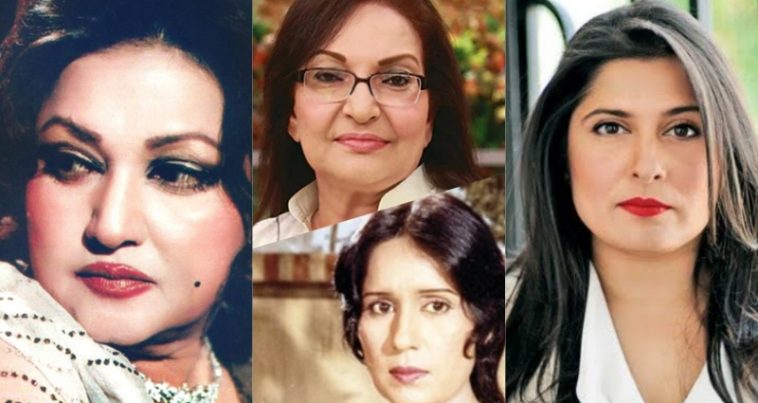What do you think of when you hear the phrase “Pakistani Women Filmmakers”. One would think you don’t hear the phrase too often to begin with, but let’s suppose you do.
I’d wager you think of Sharmeen Obaid Chinoy or Mehreen Jabbar. However, the first Pakistani women filmmakers started early. Progress was slow and arduous in an industry that was often dominated by men, and a society that didn’t encourage female participation in cinema. However, those women in positions of power made their voices heard.
Noor Jahan
“Malika e Tarannum” that she was, Noor Jahan was an institution within herself. Not only a superb singer and the most popular actress of her time, but she was also the first female director from Pakistan.
‘Chann Way’ was released in 1951. This was Noor Jahan’s debut as an actress in Pakistan too. While rumour has it that the film was directed by her husband, Shaukat Hussain Rizvi, others maintain that he only supervised or mentored her during her directorial debut.
Shaukat Hussain Rizvi didn’t know the Punjabi language, hence, Noor Jahan was given the duty of directing the actors and supervising dialects, mannerisms, and bring a realness to the film.
The film was a huge hit and spent 18 weeks at the box office.
While she didn’t direct any other films in her lifetime, her presence on screen as well as behind the camera held sway. Noor Jahan famously collaborated multiple times with auteur and musician Khwaja Khursheed Anwar and reportedly influenced a lot of his decisions.
Her influence in the industry did not wane, even up until her passing.
Sangeeta
If anyone can be credited with creating a genuine space for female directors in Pakistan, it’s Sangeeta sahiba. If the term trailblazer applies to anyone, it’s her.
With her directorial debut ‘Society Girl’ in 1976, she garnered critical and commercial success, as well as a special Nigar award for her work.
She continued her critical streak with the excellent ‘Mutthi Bhar Chaawal’, based on the novel ‘Ek Chaadar Maili Si’ by Rajinder Singh Bedi. It won best film and best director for Sangeeta sahiba at the Nigar Awards.
She also succeeded at directing the comedy ‘Mian Biwi Razi’ which was a platinum jubilee.
Shamim Ara
Shamim Ara was one of the most influential heroines of her time. She managed to hold her own against fellow superstars like Waheed Murad and Mohammad Ali in films like ‘Doraha’ and ‘Saiqa’ (where she had a producing credit) and ‘Aag Ka Darya.’ She also managed to give a solo hit with ‘Firangi’.
In her later years, she also turned to directing. Her first directorial venture was in 1978, with ‘Playboy’, starring Nadeem. The film was a golden jubilee and cemented her as a force to be reckoned with among Pakistani directors.
The film that she is most known for however, is 1995’s ‘Munda Bigra Jaaye’. The film starred Jan Rambo, Sahiba, Reema, and Babar Ali. It was a huge hit at the box office, completing 100 weeks in both Karachi and Lahore. The film is most remembered for its title song “Tera Munda Bigra Jaaye”.
Sharmeen Obaid Chinoy
Sharmeen Obaid Chinoy deserves her spot on this list for bringing home not just one but two Oscars to Pakistan for her work on social documentaries ‘A Girl in the River’ and ‘Saving Face’.
Sharmeen Obaid Chinoy has also opened the doors for animated films in Pakistan, directing the critically and commercially successful ‘Teen Bahadur’ series.
Finally, her work has also allowed her to be internationally recognized, directing a few episodes of the ‘Ms Marvel ‘Series on Disney Plus. Now, she is slated to become the first woman to direct a ‘Star Wars’ film.



Comments
0 comments